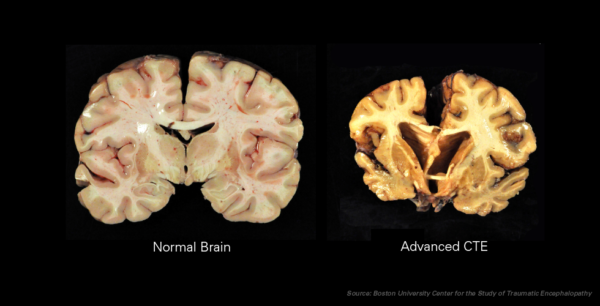The Department of Veteran Affairs (the “VA”) continues to struggle to provide effective therapy for Veterans with PTSD and TBI. As such, SFTT has decided to focus most of its attention on helping Veterans and their families cope with the ravages of the silent wounds of war.
The devastating effect of brain injury for hundreds of thousands of Veterans and their families cannot be underestimated. While SFTT will focus primarily on “new” therapy programs, we will occasionally report on the very unsettling problems faced by Veterans and their families as they seek to recover their lives.
Some “alternative” therapies have already proven to be quite successful, but many others are not widely known to Veterans or the medical profession at large. Even if these programs were endorsed or approved by the VA, treatment is often beyond the financial means of most Veterans.
While SFTT will let the “news” speak for itself, the science of treating brain injury is still in its infancy. SFTT attempts to provide balanced reporting of the pros and cons of these emerging therapy programs but strongly encourages the reader to make up their own mind as to their efficacy.
Hyperbaric Oxygen Therapy or “HBOT”
Among the most promising therapies is hyperbaric oxygen therapy or “HBOT,” Essentially, HBOT consists of a series of controlled dives in a compression chamber where Veterans receive oxygen under pressure. Many independent research studies have confirmed the efficacy of HBOT, but the VA and the DoD have consistently claimed that there is limited evidence to sustain the assertion that HBOT helps to improve brain function.
Despite the VA’s policy, many countries use HBOT to treat brain injury. In fact, the Israel Defense Forces (“IDF”) use HBOT to treat any concussive event for its military personnel. SFTT has written often about the efficacy of HBOT.
Nevertheless, VA spokesperson Dr. David Cifu continues to claim that current VA program are more effective than HBOT. The clinical evidence strongly suggests that Dr Ciful is misleading Veterans, Congressional subcommittees that oversee the VA and the public about the lack of efficacy of HBOT. SFTT will fully address Cifu’s “misspeaks” and “questionable” scientific evidence at a later date.
Combat Veterans Coming Home with CTE
Not all news is “good news” for Veterans suffering from brain trauma. There is now evidence that some Veterans suffering from PTSD may have CTE or chronic traumatic encephalopathy . The 60 Minutes Video which accompanies this article, highlights the painful story of one Veteran’s “discovery” that he had an incurable brain injury.

SFTT has been reporting for months how the NFL has been dodging the nasty public relations surrounding CTE, but now (unsurprisingly) evidence suggests that this terrible degenerative disease of the brain may also be affecting Veterans who have been exposed to a series of concussive events.
MDMA for PTSD Enters Final Trials
According to an article published in Newsweek, the final round of clinical trials for MDMA assisted psychotherapy could lead the way for the United States to approve the drug for therapeutic use as early as 2021.
The third and final phrase of trials gets underway after the Food and Drug Administration (“FDA”) designated MDMA as a “breakthrough therapy” for post-traumatic stress disorder (PTSD) in August 2017, ensuring that it will work with advocates to complete the last phase quickly.
MDMA, or 3,4-methylenedioxy-methamphetamine, is an empathogen, meaning that it stimulates togetherness and trust among users. It also inhibits activity in the brain that treats fear and stimulates hormones that make people feel more connected. While some may refer to MDMA and ecstasy interchangeably, MDMA is the pure form of the drug, while ecstasy can be cut with unknown adulterants.
SFTT Commentary: SFTT has written several times about the use of MDMA (aka “Ecstasy”) in treating PTSD. While final trial results for MDMA will not be known for several years, it is worth remembering that drugs that treat behavioral or pain symptoms but produce no long-lasting improvement in brain function may not be cause for celebration. Let’s face it, the President’s Final Report on Combating Drug Addiction (page 20) states quite clearly that “the modern opioid crisis originated within the healthcare system.” Will another drug prove more effective?
Written Exposure Therapy “WET”
According to a press release by Marilynn Larkin for the Psych Congress Network, “Written Exposure Therapy (“WET”) is noninferior to first-line cognitive processing therapy (CPT) for treating posttraumatic stress disorder (PTSD) and can be delivered in fewer sessions, researchers say.”
WET involves writing about a traumatic experience under clinical guidance, using a structured format.
“Our study has important implications for clinicians, as it suggests that PTSD can be effectively treated using a much shorter, less burdensome intervention – i.e., five sessions, minimal face-to-face time with the therapist, no between-session homework assignments – than what is typically used in clinical practice,” Dr. Denise Sloan of National Center for PTSD, VA Boston Healthcare System, told Reuters Health.
SFTT Commentary: The suggestion that WET is “noninferior to first-line cognitive processing therapy (“CPT”) is hardly a ringing endorsement. Despite VA propaganda to the contrary, CPT has been largely unsuccessful in treating Veterans with PTSD.
SFTT readers are encouraged to drop us a line if they discover an interesting new therapy to treat PTSD or TBI or would like to share a public interest story. SFTT can be reached at info@sftt.org.
ShareJAN
2018

About the Author:
STAND FOR THE TROOPS ("SFTT") is a 501(c)(3) educational foundation dedicated to safeguarding the physical and emotional well-being of America’s military personnel. Currently, our most pressing mission is to investigate and connect veterans to result-oriented treatments for the Traumatic Brain Injuries (TBI) and Post Traumatic Stress Disorder (PTSD) now triggering so many military suicides.